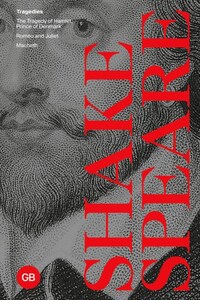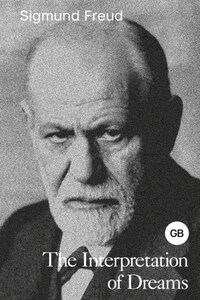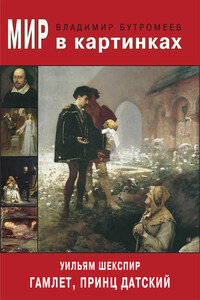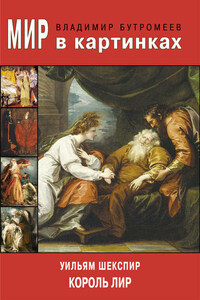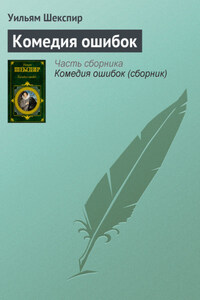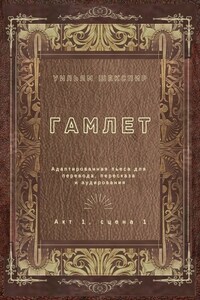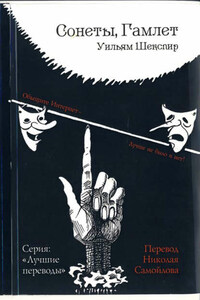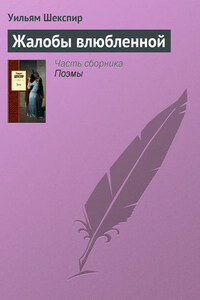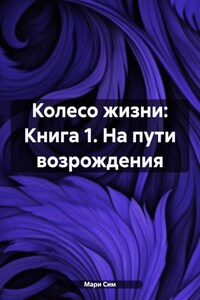Elsinore. A platform before the Castle.
Enter Francisco and Barnardo, two sentinels.
BARNARDO.
Who’s there?
FRANCISCO.
Nay, answer me. Stand and unfold yourself.
BARNARDO.
Long live the King!
FRANCISCO.
Barnardo?
BARNARDO.
He.
FRANCISCO.
You come most carefully upon your hour.
BARNARDO.
’Tis now struck twelve. Get thee to bed, Francisco.
FRANCISCO.
For this relief much thanks. ’Tis bitter cold,
And I am sick at heart.
BARNARDO.
Have you had quiet guard?
FRANCISCO.
Not a mouse stirring.
BARNARDO.
Well, good night.
If you do meet Horatio and Marcellus,
The rivals of my watch, bid them make haste.
Enter Horatio and Marcellus.
FRANCISCO.
I think I hear them. Stand, ho! Who is there?
HORATIO.
Friends to this ground.
MARCELLUS.
And liegemen to the Dane.
FRANCISCO.
Give you good night.
MARCELLUS.
O, farewell, honest soldier, who hath reliev’d you?
FRANCISCO.
Barnardo has my place. Give you good-night.
[Exit.]
MARCELLUS.
Holla, Barnardo!
BARNARDO.
Say, what, is Horatio there?
HORATIO.
A piece of him.
BARNARDO.
Welcome, Horatio. Welcome, good Marcellus.
MARCELLUS.
What, has this thing appear’d again tonight?
BARNARDO.
I have seen nothing.
MARCELLUS.
Horatio says ’tis but our fantasy,
And will not let belief take hold of him
Touching this dreaded sight, twice seen of us.
Therefore I have entreated him along
With us to watch the minutes of this night,
That if again this apparition come
He may approve our eyes and speak to it.
HORATIO.
Tush, tush, ’twill not appear.
BARNARDO.
Sit down awhile,
And let us once again assail your ears,
That are so fortified against our story,
What we two nights have seen.
HORATIO.
Well, sit we down,
And let us hear Barnardo speak of this.
BARNARDO.
Last night of all,
When yond same star that’s westward from the pole,
Had made his course t’illume that part of heaven
Where now it burns, Marcellus and myself,
The bell then beating one-
MARCELLUS.
Peace, break thee off. Look where it comes again.
Enter Ghost.
BARNARDO.
In the same figure, like the King that’s dead.
MARCELLUS.
Thou art a scholar; speak to it, Horatio.
BARNARDO.
Looks it not like the King? Mark it, Horatio.
HORATIO.
Most like. It harrows me with fear and wonder.
BARNARDO
It would be spoke to.
MARCELLUS.
Question it, Horatio.
HORATIO.
What art thou that usurp’st this time of night,
Together with that fair and warlike form
In which the majesty of buried Denmark
Did sometimes march? By heaven I charge thee speak.
MARCELLUS.
It is offended.
BARNARDO.
See, it stalks away.
HORATIO.
Stay! speak, speak! I charge thee speak!
[Exit Ghost.]
MARCELLUS.
’Tis gone, and will not answer.
BARNARDO.
How now, Horatio! You tremble and look pale.
Is not this something more than fantasy?
What think you on’t?
HORATIO.
Before my God, I might not this believe
Without the sensible and true avouch
Of mine own eyes.
MARCELLUS.
Is it not like the King?
HORATIO.
As thou art to thyself:
Such was the very armour he had on
When he th’ambitious Norway combated;
So frown’d he once, when in an angry parle
He smote the sledded Polacks on the ice.
’Tis strange.
MARCELLUS.
Thus twice before, and jump at this dead hour,
With martial stalk hath he gone by our watch.
HORATIO.
In what particular thought to work I know not;
But in the gross and scope of my opinion,
This bodes some strange eruption to our state.
MARCELLUS.
Good now, sit down, and tell me, he that knows,
Why this same strict and most observant watch
So nightly toils the subject of the land,
And why such daily cast of brazen cannon
And foreign mart for implements of war;
Why such impress of shipwrights, whose sore task
Does not divide the Sunday from the week.
What might be toward, that this sweaty haste
